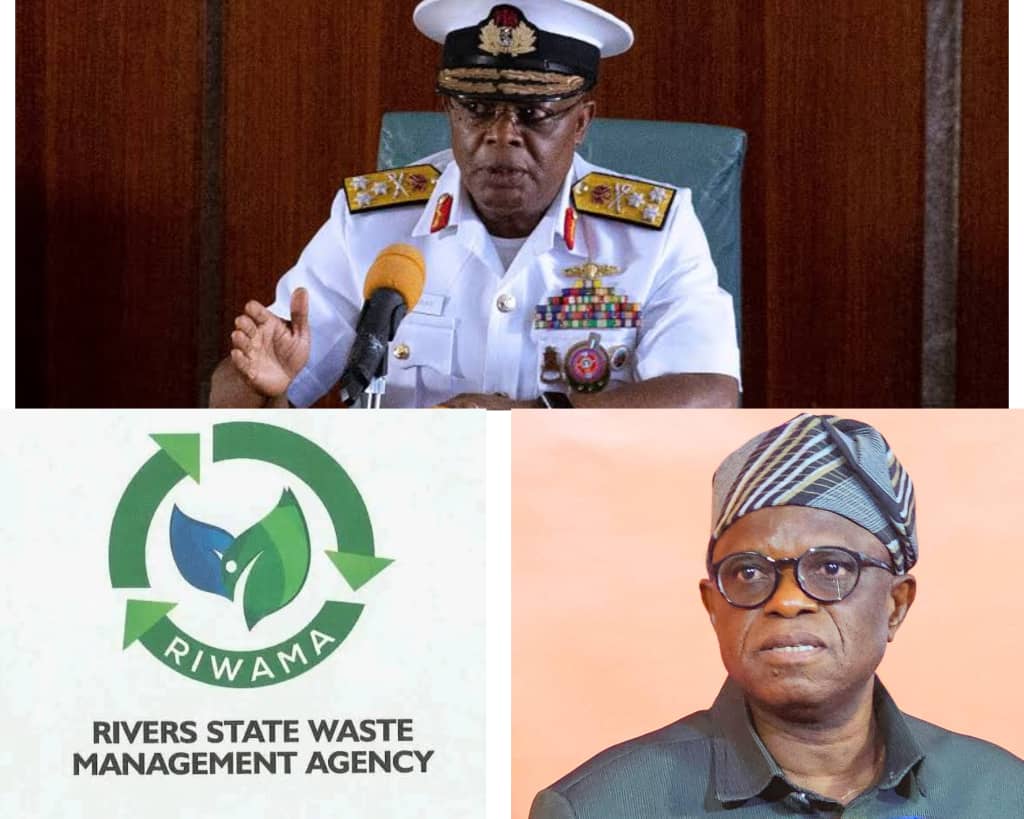It is now almost six months since the declaration of emergency rule in Rivers State, during which all democratic structures of government were abruptly suspended.
In place of constitutional governance, President Bola Ahmed Tinubu appointed a Sole Administrator, Vice Admiral Ibok-Ete Ibas (rtd), a former Chief of Naval Staff and Ambassador to Ghana. Following this proclamation, the governor, the State House of Assembly, and all elected or appointed officials—except the judiciary—were suspended. From that moment, Rivers State slipped into political paralysis, with governance reduced to epileptic spasms.
Ironically, the emergency rule, declared under the pretext of addressing insecurity and restoring peace, has instead deepened political instability. Many Rivers people continue to question the true motives behind the move.
A SCRIPTED ONSLAUGHT
Barely weeks after assuming office, Vice Admiral Ibas began dismantling critical institutional frameworks in the State, as though executing a carefully prepared script from Abuja aimed at total political capture.
His first targets included the Rivers State Independent Electoral Commission (RSIEC) and the Civil Service Commission. Soon after, he dissolved the Governing Councils of tertiary institutions, the State Universal Basic Education Board, the Senior Secondary Education Board, the University Teaching Hospital Board, the Hospital Management Board, the Contributory Health Protection Programme Board, the Internal Revenue Board, the Waste Management Board, and the Microfinance Agency Board.
These actions provoked public outrage: were these bodies truly responsible for Rivers’ political crisis, or was something more sinister unfolding?
THE GOVERNOR’S RESTRAINT
Governor Siminalayi Fubara, regarding the emergency rule as a temporary pause in hostilities, urged his supporters to remain calm, hoping peace and reconciliation would prevail.
A public appearance alongside his estranged predecessor, former Governor Nyesom Wike, even raised hopes that the crisis would soon be resolved and the emergency lifted.
Instead, Ibas tightened his grip—dismantling administrative structures, installing proxies, and nominating controversial appointees. Among these was a Cross River indigene proposed as Chairman of RSIEC, a move widely condemned as illegal and provocative. He also forwarded the State’s Appropriation Bill to the National Assembly through President Tinubu, bypassing all constitutional processes.
FINANCIAL CONTROVERSIES
Despite a Supreme Court order withholding state funds until a valid appropriation law was passed, Ibas reportedly received and began spending over ₦166.2 billion in federal allocations, in addition to ₦264 billion in savings left behind by Governor Fubara from internally generated revenue.
Allegations abound that much of these funds have been diverted to undisclosed projects or political patronage.
ILLEGAL APPOINTMENTS AND OVERREACH
Ibas further entrenched his overreach by:
Appointing Local Government Sole Administrators
Naming “Special Advisers” to head ministries as de facto Commissioners
Appointing a Secretary to the State Government
Swearing in and reshuffling Permanent Secretaries
Removing the Accountant General and replacing the Acting Head of Service
In a move widely viewed as provocative, he has also pushed ahead with plans to conduct local government elections, already mired in litigation, allegedly in violation of multiple statutory provisions.
STATE CAPTURE IN FULL SWING
On August 13, 2025—just one month before the anticipated end of emergency rule—Ibas made sweeping appointments to eight parastatal boards and governing councils of tertiary institutions. Many observers see this as a desperate attempt to entrench political control before Governor Fubara’s expected return.
Civil society groups, Rivers elders, and legal practitioners, including Barr. Chizzy Enyi, have approached the courts to halt both the planned local government elections and other questionable actions. They argue that Ibas has acted less like a neutral crisis manager and more like a political enforcer for vested interests ahead of the 2027 general elections.
A DAMAGING LEGACY
If Abuja permits Vice Admiral Ibok-Ete Ibas (rtd) to leave office on September 18, 2025, he may depart having inflicted profound damage on Rivers State’s governance, economy, and institutional integrity.
Many fear it will take years to undo the harm of these turbulent six months.
Magnus Ichechi
Friday, August 15, 2025

























